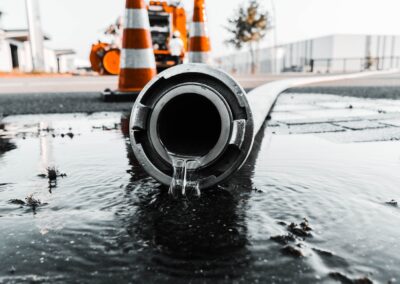Driving Innovation and Efficiency through Public-Private Partnerships
Collaborative Efforts for Technological Advancements
Public-private partnerships (PPPs) are instrumental in advancing smart irrigation infrastructure, particularly in regions like Saudi Arabia and the UAE, where efficient water management is paramount. By leveraging the strengths of both sectors, PPPs can drive technological innovations that enhance irrigation systems. Governments provide regulatory support and funding, while private companies bring in expertise, advanced technologies, and innovative solutions. For instance, collaborations between government bodies and tech firms can lead to the integration of AI and blockchain in irrigation systems. AI can optimize water distribution based on real-time data, while blockchain ensures transparency and security in data management. This synergy accelerates the development and deployment of cutting-edge irrigation technologies, ensuring that agricultural practices are both efficient and sustainable.
Enhancing Resource Management and Sustainability
Incorporating smart irrigation infrastructure through public-private partnerships significantly enhances resource management and sustainability. These partnerships facilitate the sharing of knowledge, resources, and best practices, leading to more effective water use. For example, in cities like Riyadh and Dubai, where water scarcity is a critical issue, PPPs can help implement systems that reduce water wastage and improve irrigation efficiency. By using smart sensors and IoT technology, these systems can monitor soil moisture levels and weather conditions, adjusting water delivery accordingly. This precision irrigation not only conserves water but also promotes healthier crop growth, contributing to food security and environmental sustainability. The collaboration ensures that both public and private entities work towards common sustainability goals, maximizing the impact of their efforts.
Financial and Operational Benefits
Public-private partnerships in smart irrigation also offer significant financial and operational benefits. Sharing the financial burden between the public and private sectors makes large-scale projects more feasible. For example, in the UAE, such partnerships can attract private investment in infrastructure projects, reducing the financial strain on public budgets. Additionally, PPPs can streamline operations by combining the efficiency and innovation of private companies with the oversight and support of government entities. This collaborative approach can lead to cost savings, improved project management, and faster implementation of smart irrigation systems. As a result, agricultural businesses and local governments can achieve better outcomes, ensuring that water resources are managed efficiently and sustainably.
Integrating Advanced Technologies
The integration of advanced technologies is a cornerstone of successful smart irrigation projects facilitated by public-private partnerships. Technologies such as AI, IoT, and blockchain are crucial for modernizing irrigation systems and making them more efficient. In Dubai, for instance, partnerships between technology firms and agricultural sectors can lead to the deployment of AI-powered irrigation controllers that adjust water usage based on real-time data. IoT devices can provide continuous monitoring of soil and weather conditions, ensuring optimal irrigation schedules. Blockchain technology can secure and verify data, enhancing transparency and trust among stakeholders. These technological integrations, supported by PPPs, ensure that smart irrigation systems are not only innovative but also reliable and secure.
Developing Comprehensive Training and Support Programs
Successful deployment of smart irrigation infrastructure requires comprehensive training and support programs, which can be effectively developed through public-private partnerships. These programs ensure that all stakeholders, including farmers, technicians, and government officials, are well-equipped to operate and maintain advanced irrigation systems. In regions like Riyadh and Dubai, PPPs can facilitate the creation of training centers and workshops that provide hands-on experience with new technologies. Ongoing support and education ensure that users can maximize the benefits of smart irrigation systems, leading to more efficient water use and improved agricultural productivity. By investing in training and support, public-private partnerships ensure the long-term success and sustainability of smart irrigation initiatives.
Addressing Regulatory and Policy Challenges
Public-private partnerships are essential for navigating the regulatory and policy challenges associated with deploying smart irrigation systems. Governments can leverage the expertise of private companies to develop policies and regulations that promote the adoption of advanced irrigation technologies. In Saudi Arabia, for example, PPPs can help create frameworks that incentivize the use of smart irrigation, such as subsidies for technology adoption or tax benefits for sustainable practices. Additionally, partnerships can facilitate compliance with environmental regulations, ensuring that new systems meet the required standards. By working together, public and private entities can create a favorable regulatory environment that supports innovation and sustainability in agriculture.
#SmartIrrigation #PublicPrivatePartnerships #WaterManagement #SustainableAgriculture #AIinIrrigation #BlockchainInAgriculture #UAE #SaudiArabia #Riyadh #Dubai























